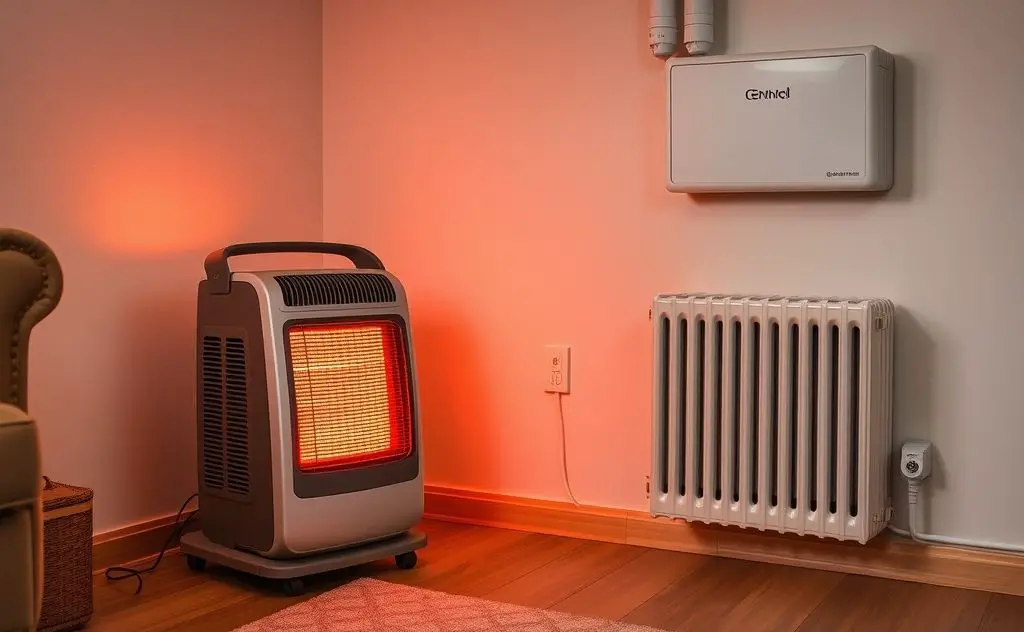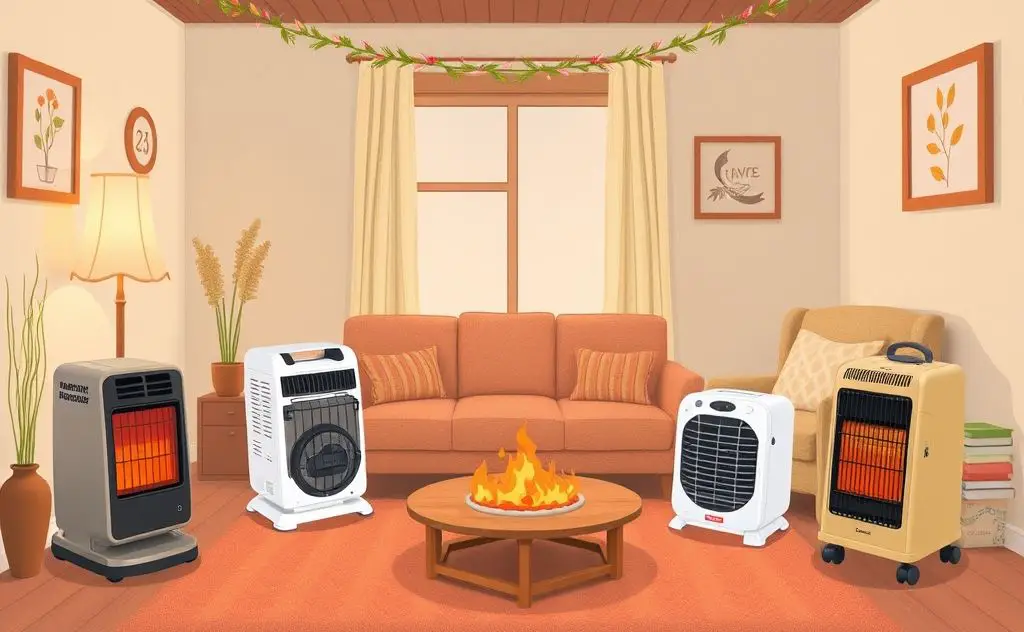When comparing costs, space heaters are generally cheaper to operate than central heating systems, especially for heating small areas, but the overall efficiency and long-term savings depend on usage and the size of the space being heated.
Choosing between a space heater and central heating depends on your home size, insulation, and heating needs. While space heaters seem cheaper for small spaces, central heating often wins for whole-home comfort. This guide breaks down costs, efficiency, and when each option makes sense.

Cost Comparison: Space Heaters vs Central Heating
The cheaper option depends on how much space you need to heat:
| Factor | Space Heater | Central Heating |
|---|---|---|
| Upfront Cost | $50-$300 | $3,000-$10,000+ |
| Operating Cost (per hour) | $0.15-$0.30 | $0.10-$0.50 |
| Best For | Single rooms | Whole homes |
When Space Heaters Win
Space heaters cost less when:
- Heating one room for short periods
- Your home has poor insulation
- You need supplemental heat in cold spots
According to Energy.gov, space heaters work best when heating small spaces for limited times.
When Central Heating Wins
Central systems save money when:
- Heating multiple rooms daily
- Your home has good insulation
- You need consistent whole-home warmth

Types of Space Heaters and Their Costs
Electric Space Heaters
Most common type. Infrared heaters and ceramic heaters are popular electric options.
Operating Costs:
- 1,500W heater = $0.22/hour (at $0.15/kWh)
- Running 8 hours/day = $52/month
Propane Space Heaters
Good for power outages but require ventilation. Learn about propane heater safety before use.
Central Heating System Options
Gas Furnaces
Most cost-effective for whole-home heating in cold climates. Natural gas costs about 1/3 the price of electricity per BTU.
Heat Pumps
Efficient electric option that works for both heating and cooling. Modern models work well even in cold climates.
Oil Heating
Common in older homes. Oil-filled radiators offer steady heat but prices fluctuate with oil markets.
Key Factors That Affect Costs
Home Size
Space heaters become expensive when heating multiple rooms. The tipping point is typically around 500 sq ft.
Insulation Quality
Well-insulated homes retain heat better. The EPA recommends proper insulation to reduce heating costs.
Climate
Colder regions favor central heating. Mild climates may only need occasional space heater use.
Smart Ways to Save on Heating
Zone Heating Strategy
Combine central heating at lower temps with space heaters in occupied rooms.
Thermostat Management
Lower your central thermostat by 5-10°F when using space heaters.
Maintenance
Clean filters and service systems annually. A well-tuned furnace uses less fuel.
Safety Considerations
Space heaters cause 1,700 fires annually according to the NFPA. Always:
- Keep 3 feet clearance from flammables
- Never leave unattended
- Plug directly into wall outlets
Central heating systems require professional installation but are generally safer for continuous use.
